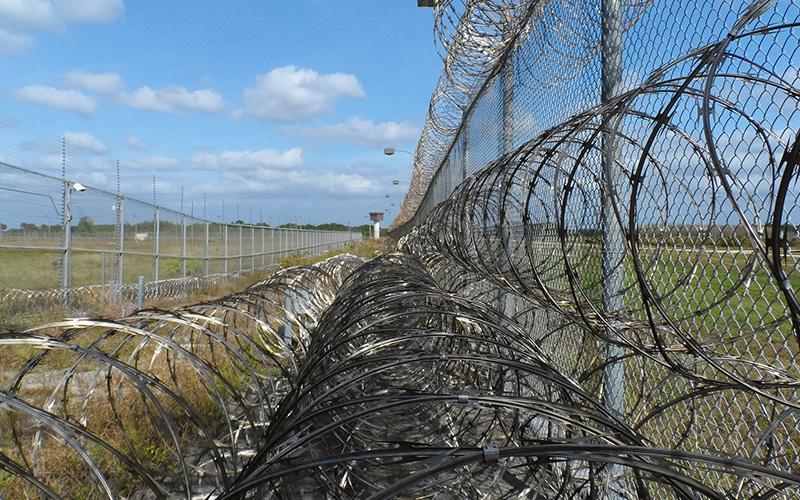Clemency
Clemency
All 50 states have provisions in the State Constitution that allow the Governor to grant people convicted of crimes in their state clemency
What is a Clemency Petition?
A clemency petition is where a person who was convicted of a crime asks either the Governor of the State in which they were convicted, or the President if the conviction was in Federal Court, to grant them some relief from the burden of their conviction.
Federal and State Clemency
Clemency can be given in the form of a pardon, commutation of sentence, or restoration of civil rights.
All 50 states have provisions in the State Constitution that allow the Governor to grant people convicted of crimes in their state clemency. The United States Constitution grants the President the power to grant clemency to people who have been convicted of Federal crimes.
Each state has its own rules and its own process for filing a clemency petition. The President has his own set of rules for Federal clemency petitions.
If clemency is granted, the applicant may receive the following benefits:
- Having a conviction cleared, sealed, or expunged from their record;
- Reduction of a prison or jail sentence, or a death sentence, reduction of probation, parole, supervised release, or reduction of a fine;
- Having your civil rights restored, such as the right to vote, the right to hold a professional or occupational license, the right to hold public office, the right to work in the public sector, or the right to possess a firearm
- Immunity from prosecution, if clemency is given prior to conviction.
What is a Pardon?
A pardon is a form of clemency where the government, usually the Governor in a state conviction, or the President in a Federal conviction, forgives a person for committing a crime.
Some states have provisions in the law that allow the government to grant a pardon and declare the person innocent of the crime. A pardon may be granted before or after conviction, depending on the laws of the particular jurisdiction.

In all 50 states, the power to pardon is vested either in the Governor or a state agency, such as a Pardon or Clemency Board.
In the Federal system, the pardon power for Federal offenses is conferred to the President of the United States under Article II, Section 2 of the United States Constitution. That provision states that the President “shall have power to grant reprieves and pardons for offenses against the United States, except in cases of impeachment.”
The pardon power of the President applies only to convictions under Federal law. This power includes convictions in military court-martial cases, as well as convictions in the Superior Court of the District of Columbia. The President has no power to pardon a person convicted in State court.
What is a Commutation of Sentence?
A Commutation of Sentence is a form of clemency where the Government, either State or Federal, reduces a penalty imposed after a conviction.
Commutation of a prison sentence is where the Governor or a State Clemency Board either reduces a prison or jail sentence, and either reduces the time or allows a person to be released.
Sometimes, the term of probation, parole, or supervised release can also be reduced, as can fines or forfeitures. In some cases, a sentence may be completely substituted; a prison sentence can be commuted to probation or parole instead of actual custody; a death sentence can be substituted with life imprisonment.
Commutation does not reverse or erase the conviction
The recipient of this form of clemency still remains convicted and the conviction stays on their record.
In some states a commutation of sentence may be conditional, meaning that the convicted person may be required to satisfy certain conditions or else lose the benefit of commutation.
What is a Restoration of Civil Rights?
A Restoration of Civil Rights is a form of clemency that restores certain civil rights to a person that were lost upon the conviction of a crime.
Felony and some misdemeanor convictions automatically result in the loss of certain rights, depending on the jurisdiction, such as:
- The right to vote
- the right to hold public office
- the right to serve on a jury
- the right to participate in Government contracts or programs
- the right to serve on a board of directors for a corporation
- the right to maintain a driver’s license for certain motor vehicle offenses
- the right to apply for United States citizenship, permanent residency, visas, and other immigration benefits
- the right to receive certain public benefits, such as housing, government-secured loans, and other public benefits
- the right to receive Federal student financial aid (for many drug convictions)
- the right to obtain or maintain professional or occupational licenses
- the right to possess a firearm
The rules and procedures for restoring civil rights vary widely from state to state
In some states, an application has to be made to the Governor or another state agency, such as a Clemency Board or a Board of Pardons. In other states, civil right have to be restored by the courts. Either way, the process involves completing and submitting an application that outlines the legal and factual reasons why the applicant deserves the restoration of civil rights.